Stand and Deliver: - 2 + 2 = Jaime Escalante Part 2 (8700 words)
11: Pupils Will Rise To The Level Of Expectations More Easily When You Get Rid Of Those Who Won’t
Escalante asks for permission to give lessons during the summer holidays to his best pupils so that he can prepare them for calculus. (They have to learn trigonometry and maths analysis first).
The principal objects that summer classrooms are reserved for remedial courses. But Jaime has an answer to everything:
“If you wanna turn this school around, you’re gonna have to start from the top.”
I don’t know what happened to “Pupils will rise to the level of expectations.” Escalante must have been abducted and brainwashed by extra-terrestrials because saying that you can make everyone progress significantly sounds very different from “I can achieve something great if I’m allowed to get rid of the bad pupils.”
It sounds a bit like the absolute contrary.
But if you look closely, he’s been following this course of action since the beginning. Do you remember finger-man ? Finger-man was a pupil who didn’t know his times tables. Escalante got rid of him. The End.
I know, the boy is part of a gang and would have seriously impeached any proper lesson.
But the job of a teacher is to deal with that kind of individual, not to give up on them. Escalante humiliates him repeatedly until the boy stops coming to his class. And when the new term starts, finger-man reappears just to throw a chair at Escalante because he was secretly hoping that the man wouldn’t be there for another year that which would have allowed him to go back to school.
=> Escalante deliberately prevents a pupil from coming to school by humiliating him.
Back in the staff room, seeing that things are not going as fast as he wishes, he declares: “I teach Calculus or, have a nice day.”
Apart from the fact that “have a nice day” means “go fuck yourself” in his mouth, he is here acknowledging that his initiative is inherently selfish. He is proposing something exceptional that will require the pupils to come every day during their summer holidays, that which represents THE absolute nightmare of any pupil, and when he sees that his request is not immediately validated he threatens to resign.
So, what has become of his desire to bring Pancho to college ? All the secret anxiety we’ve imagined, his involvement, his devotion, the secret bound that has grown between him and the pupils… where is all that if he can resign just because he is not allowed to give extra courses in an unrequired subject ? It is nowhere. Escalante doesn’t give a shit about the pupils. By now, he knows that he will not accomplish miracles with basic maths or algebra and he won’t accept to simply teach them nonetheless for the pupils' sake. So it’s Calculus with the best pupils or “have a nice day.”
12: Why Is He Carrying On ?
I know that the idea that Jaime Escalante should only be motivated by a grudge against the head of the maths department is unbelievable and for a good reason: it’s not its sole motivation.
Jaime is a broken man.
Let’s pause for a minute here and think about the movie. Producing a movie is extremely difficult. Producing a movie about education is extremely, extremely difficult. So, when you do so, you have to be sure that something is going to attract the public’s attention. When a teacher like Jaime Escalante becomes a rock star, it obviously creates an opportunity to make a movie about education. If you despise the guy and his ideology, you still have to make a movie that will look like it’s conveying the same ideas as the man. You need to give the audience what it is looking for. And the sole thing that you can do to tell your real opinion is to hide elements, hints at another way of seeing things, create ambiguities. It might sound desperate and ridiculous, but if you don’t do it, it is very likely that someone else is going to make a purely hagiographic movie.
Stand and Deliver is particularly cautious as for its elements of criticism. So, if the “revenge against Raquel Ortega” plot looks plausible but far-fetched, the “Jaime Escalante is a loser” one is buried even deeper.
At the beginning of the film, Jaime takes out the trash and has a little conversation with his neighbour. Their exchange is strongly ambiguous.
Jo: Hey listen, I hear your company is pushing all hogs into PCs.
Jaime: I don’t work there anymore.
Fabiola: Jaime is teaching highschool now. Here’s your thingy.
Jo: Well… why didn’t you come to me if you got laid off. We’re starting college kids at 30 gs.
Jaime: I didn’t get laid off Joe, I wanna teach.
Jo: Highschool teacher, well good. That’s great.
Why did the screenwriters need this scene ? And why did they need to make the neighbour infer that Jaime got fired ?
He is not saying “Did you get fired” ? He draws the conclusion from the way Jaime and his wife announces the piece of news AND from the fact that he’s learnt that Jaime’s company is pushing into PCs. Why is he bringing the topic like that ? “Hey, listen…” like it’s a bit embarrassing. There’s something behind these words. Most probably he knows that this means Jaime is in a bad spot because he is not qualified to work on PCs and Jaime’s answer only confirms what he was sensing: he got laid off.
And why does he react so negatively, as if he were vexed => “Well good. That’s great.” Do you wanna know why ? Do you know why Alan Turing created computers in the first place ? I’ll come back to this later.
So, my point is, it is very likely that Jaime got fired and lied to his wife about it (He is macho like that). And it is very likely that he is at the bottom of the pit when it comes to finding a job. He doesn’t end up at Garfield Highschool by chance, it truly is the kind of job that corresponds to his level of despair.
During the first meeting of the staff, a teacher announces his resignation: he has found a job at aerospace. Jaime stares at him silently and then lower his eyes. He is envious and sad. He can’t find a job to escape Garfield Highschool.
So, his desire to show the head teacher what he is capable of is also a move made in order to prove his own worth to himself and to society. This man needs help.
His realisation that he could teach Calculus in highschool gets him carried away. He loses control because he is elated at the idea and then because of the pleasure he experiences in doing it.
13: Copy/Paste Is Also Called Alienated Love
The pattern of perfect copy is recurrent in the film.
Jaime has his pupils repeat “a negative times a negative equals a positive” an excessive number of time.
Then, it’s the word “cool” as an answer to “think” when they are suffering from the heat in the classroom during summer. “Think…” “cool” “Think” “Cool” “…” “Cool”
Later on, there’s when Jaime leaves his free evening english class to have a heart attack. He excuses himself “Un momente por favor” and the ladies all automatically translate “one moment please” without realising that Jaime is having a serious problem.
Eventually, his pupils will be accused of cheating because they all made the same mistakes at the A.P. exam.
Jaime inspires copy, repetition, not appropriation of knowledge. He creates doubles of himself. (And he spontaneously takes pleasure in doing so, not in teaching).
The head teacher will suggest that he is a fascist: “Well if this man can walk in here and dictate his own terms over my objections, I see no reason for me to continue as department chair.”
What is fascism if not the incapacity to cope with difference ?
Such an incapacity often stems from the spontaneous conviction that you are not loveable, like when you were raised by overly severe parents.
Recreating yourself in others is not the consequence of an attempt to be loved by them, but to love yourself.
When someone’s self is crushed by rules and obligations put into place by their parents, the sole way through which love remains accessible is by respecting these rules (Which doesn’t mean that kids never rebel, simply, when they do they feel like unloveable monsters).
However, this means hating yourself. Because if love is in subjecting to rules, any desire not to do so or any natural urge is associated with a feeling of not being loveable. As a consequence, everything that is irrepressibly "you" becomes everything that you hate.
If you put someone who suffers from that kind of emotional imbalance in a position of authority, they will automatically use this authority to recreate themselves through the rules that they will institute. The hidden unconscious objective of the rules will be “you have to be me,” even if officially it will only be “order” “escaping chaos” or “reaching a goal.”
Because such persons were conditioned to live in a world in which everyone has to sacrifice their inner selves to order the only way they can be free is by making their selves the law. Once the law is “you have to be Jaime Escalante” then Jaime Escalante can be himself and feel loveable.
The problem being that each time someone fails at being Jaime Escalante (because obviously they will fail) it is perceived as a rebellion and not as the expression of an individuality.
Also, “I do what Jaime Escalante expects from me” is another version of “I am Jaime Escalante.” It is still an invasion of the self but a little less violent one.
I know this explanation might seem a bit vague but I’m only trying to give a vague idea of the kind of psychological mechanisms that can bring Jaime to enjoy spending so much time with his pupils. He is trying to superimpose his personality and theirs.
The summer classes are every day except Sunday, this from 7 to 12. The kids are in high school, they are sixteen or seventeen: Jaime becomes an obstacle to their loss of virginity, to their love stories, to their appreciation of existence, to their exploration of themselves.
The room is horribly hot (and stinks) because they are entering a morbid territory. Also, Claudia gets many oranges. Oranges are also used in To Sir, With Love as a metaphor for sexual arousal. It's a fruit = reproductive "organ," juicy, inflated. Claudia is Jaime's more than ever. It might be his "You think I'm enjoying this ?" that drives her so excited, because it makes her believe that she is more than a sex object during Jaime's class. (But truly, he is enjoying this).
When the next term arrives, he manages to force them to come earlier in the morning, take his course several time in the day, leave only after 17.00 and come on Saturday morning AND during the holidays.
This is not devoted involvement. This is ecstasy in invading, assimilating the pupils, shaping them, controlling them. Ana abandoned her father’s restaurant. Pancho gives up on an important job opportunity after Jaime bluntly scares him during a strange “intimidation through dangerous driving” scene which we are more accustomed to see in gangster movies. Claudia gives up on her sexual life. At some point, she experiences difficulties to follow the lesson (she looks outside) and he dares make this remark:
« Come on we’re going backwards, you’re fooling around too much during the weekends »
What week ends ? Jaime wants to swallow his pupils. He is far closer to the guru of a sect than to the teacher that helps his kids blossom. He wants to be the ultimate priority, the absolute priority and, as a consequence, he indirectly wants to destroy everything else that matters in their lives. That's where he becomes the Michael Myers I talked about in my introduction, when he drives through the neighbourhood observing what he is going to murder. His teaching becomes hate for everything that constitutes his pupils' lives beyond his teaching.
On the day of the remark I just quoted, Claudia cracks and leaves the room. He catches up to her:
Claudia: “Everything is falling apart right now. My boyfriend is freaking out… my mom… school sucks. I’m in that classroom all day, Kemo. Look at my clothes, and my hair… I can’t even comb it. I hate my life.”
Kemo: “So what’s the problem ? ”
Claudia: “Kemo. ” (Is she telling him that he is the problem ?)
He gives her a hug.
Again he does something that a teacher is not supposed to do and we are totally ok with it because we totally buy into his benevolent teacher masquerade.
But what’s happening here is that a girl who is close to escape the influence of a very sick man is caught back into his realm because he exploits her emotional weakness and gives her what she craves for and which should normally save her from him. Claudia needs the recognition of men and she doesn’t get it in Jaime’s class because Jaime made Lupé the popular girl. Her remark about combing her hair is this: she doesn’t feel like a woman anymore. Jaime gives her a hug, the king gets the most beautiful woman, it's important for Jaime to possess her symbolically in order to keep his influence over the class.
The life she complains about is the life she has because of him. I’m not even sure of what he means by “So what’s the problem ?” I suppose it is that as she is in his class to escape her life, maybe his answer is supposed to mean that she is doing exactly what she should… or worse that nothing means anything as long as she follows his lesson… or that as long as she hates her life, there's no problem for him.
Tito, Pancho and Angel are given lines of dialogues which suggest that they are slowly realising that Jaime is a hypocrite and takes a lot of pleasure in what he is doing. The manipulation doesn’t work perfectly, but it works enough for Jaime to experience a feeling of “acceptability,” of love. Not because the pupils love him but because they abide by his rules, the difference is very important. An alienated individual like Escalante becomes blind to love directed towards himself and mistakes submission to rules with love.
14: Carried Away To Death
Two weeks before the A.P. test Escalante has a heart attack. His last words to the students before it are:
« This is review. You should know this. This is review. No way. You’re acting like a blind man in a dark room looking for a black cat that isn’t there. You’re giving me a shot from the back. No way. No way. »
So. We can believe that after a long year of exhausting work, the man’s body finally gives way. He was too involved, he wanted too much to do good.
But why making it happen just after a very serious moment of crisis with the class ? Is he realising that they’re not good enough for the A.P. test ? I suppose this is one possibility.
My guess is that he’s lived the most rewarding moment of his life with them. He feels alive when “teaching” them. He feels loveable, he feels worthy, he feels in control, he feels like god and the A.P. test is going to put an end to this.
The real Jaime Escalante suffered from an inflammation of the gallblader not a heart attack. The heart attack was chosen for its more symbolic meaning. Jaime’s heart is attacked. He is broken hearted. For him, the end of these lessons is the end of a love story (with himself).
The scene is quite appalling, he leaves the room, falls into a first flight of stairs, his breathing becomes heavier and heavier and he slowly collapses on his face in another flight of stairs => The consequence of his heart attack is an abysmal fall into a loss of self.
Stopping his sessions with the pupils is losing his sense of self.
Among the kids, the first consequence of his "death" is a fight between the males for the position of alpha. Javier copies Jaime but Tito rebels against this Jaime figure because the boy obviously doesn’t have the same power over them and they have an opportunity to wake up. The boy walks to a girl (Rafaela) and starts massaging her shoulders, how surprising. Jaime is not here anymore, libido slowly reinvades their space. Sadly, the girl isn’t responsive yet:
Rafaela: “It’s our fault, we just sit there and watch him burn in.” (Her mistake is meaningful. Teaching is a sublimated sexual act for Escalante, hence fire inside of him).
Claudia: “It’s burn out.”
We’re in 1980 and sex isn’t what it is today. The guys are supposed to feel better about it than the girls. Tito is touching her, she likes it and it makes her feel guilty. Jaime comes back in her head.
The man has found a way to insert himself in their lives as the one who justifies their… desires. Ganas.
Claudia’s condescending answer is rivalry for the teacher’s love. “I’m his favourite.”
Angel is the only one to see the truth: “The man brought it on himself. He was asking for trouble.”
Ana: “How can you say that ?”
Pancho: “You wannabe chollo asshole man.”
And they fight. The order has collapsed. The pupils cannot work together and without Escalante's come back, everything would be ruined. It’s two weeks before the exam after one year of intense work and they have no autonomy whatsoever, no ganas.
...until the principal enters the room and tells them that Escalante is ok. Then, order is restored.
The fact that their substitute should be a music teacher underlines that he has nothing to do with the working attitude of the class. He is non-existent. Escalante is alive, the A.P. test reappears, and ganas.
When he wakes up at the hospital, Jaime is a man who’s looked death in the eyes for one very long minute. Does he tell his boy that he loves him ? Does he tell his wife how much he wants to make love to her ? No. He gets rid of them as fast as possible, his son is still just good for taking the trash out. And when the kid tells his dad “the doctor said no job related activity for at least a month” Jaime answers “I want another doctor.” This heart attack represented a hope for this wife and this son and Jaime sweeps it in one second and without any awareness of the pain he causes.
Then, once the intruders have left, Jaime stares at the nurse in a strange manner. Aaaah ok. So that’s what he wanted. Flirting with death and surviving has made him realise how much he needs to make love to another woman than his wife. Oh ! He’s asking her what time she finishes work. He’s back to life ! No more robotic “one momento I need to have a heart attack, I’m back in a minute.” He is going to cheat on his wife ah ah ah. Wait… no. He wants to use the nurse to bring a sheet of exercises to his pupils. So… he still is cheating on his wife except that sex is with his pupils, again in a transposed sublimated manner.
When he comes back to school the girls welcome him. Tito and Angel are less enthusiastic “You should be taking it easy man.” “Yeah, Kemo go back to bed man.”
Escalante doesn’t give any explanation, doesn’t ask what they did without him, doesn’t comment on the traumatic experience he’s just been through. Nothing. It’s exactly as if nothing happened. Two seconds in the classroom and the kids are lined up against the wall and he fires question at them. That’s how he feels alive, that’s how he gets rid of the existential anxiety that his heart attack necessarily has inspired him. He doesn’t want to spend time with his “loved ones,” he does not want to have sex with a random woman, he wants to toy with his pupils.
Also, he doesn’t ask any question to the other teacher and dismisses him with “have a good day” => “screw you.” The pupils know he is mocking him. He needs to act impolitely because the man represents a rival. Even though he was just a music teacher, the kids might have developed some appreciation of him while Jaime was away and they were studying Calculus WITH ANOTHER MAN !
15: Students Will Rise To The Level Of Expectations
On wikipedia’s page for Stand and Deliver in the section “In Popular Culture” you can read:
“The episode of South Park entitled "Eek, a Penis!" borrows heavily from the plot of Stand and Deliver, with Cartman assuming a similar role to that played by Edward James Olmos, although where in the film the students were falsely accused of cheating, in the episode the students actually did cheat and got away with it.”
Well… who said they didn’t cheat in the movie ? Ah ok, they passed the test when they retook it so it definitely means that they didn’t cheat the first time.
They cheated.
Angel got the subjects beforehand and most pupils prepared the test. They might even have had the help of the school principal who doesn’t give a shit about Jaime’s motivations and only wants to find a way to save his school from ruin. But the principal’s intervention is not necessary, the door’s locker looks pretty damaged, it obviously isn’t the first time that pupils have tried to steal some papers. And the idea of getting them from the mailman isn't stupid either.
The trick is that the word “cheating” is strongly associated with “looking for the correct answers” in our minds and we spontaneously believe that they all truly honestly obtained the same grades; that this exceptional coincidence is true.
And yes, it’s partially true, they all obtained the same grades… but with an untold preparation.
Ana and Javier were obviously left aside because they didn’t need to cheat and also because they might have confessed the truth afterwards. Lupé too maybe.
But Angel, Tito, Pancho, Claudia and Rafaela did cheat I believe.
I’m not too sure about who did what, but when Dr. Ramirez starts questioning Rafaela, Angel somewhat panics and intervenes so that the psychometrician doesn’t get an answer. The boy knows that she won’t dare lie and that they are all going to be discovered.
When just before Javier takes Ana’s defence, and then leaves the room, we can see on Angel’s face that the other kid has just earned his respect… because he did not denounce the others in order to save his ass. However, the boy never says “nobody cheated !” but “she didn’t do anything wrong.” Leaving the room as an answer to "who did ?" could also mean "they all cheated."
Ramirez concludes “there’s no point if they won’t cooperate” but as it means that the grades are cancelled, it means “they cheated.” The behaviour of the two psychometricians who come to investigate corresponds perfectly to the one of two persons who are convinced that the pupils cheated and who want to determine who and how. They are not racists. Ramirez is very honestly and personally hurt by the accusation and Pearson keeps his cool and summarizes the problem very well:
“There are two kinds of racism Mr. Escalante: singling out a group because they are members of a minority and not singling out a group because they are members of a minority.”
It is perfectly believable that the irregularities were discovered before the names of the pupils. Both doctors were sent not to sink the pupils and the school but to make sure that if there are pupils who didn't cheat their achievement is not going to be tarnished by the whole story. They are here to help and support the school, to save what can be saved from the situation.
When Pearson explains the reason why the E.T.S. thinks that Escalante’s pupils cheated his arguments are purposely ambiguous. Some problems clearly rise from the very special experience they’ve lived with Escalante: Not knowing simple maths, using peculiar or absurd and unexpected ways to solve the problems. Some others are the result of cheating: All scoring extremely high on the toughest exercise where no other school even come close to their scores and finishing early.
When Javier asks Ana if she believes someone cheated, she is not really convinced that no one did:
Ana - Do you think they got the test ahead of time ?
Javier - Well, Claudia was having emotional problems.
Ana - Pancho was way behind.
Javier - Do you really think anyone cheated ?
Ana - No.”
All the pupils performed excellently (better than any other school) and had extremely similar copies ! Ana (excellent) and Pancho (bad). Claudia (poor) and Javier (very good).
16: A Little Word About Sex
As I said at the beginning of this essay, Escalante captures his pupils’ libido in order to use it as motivational device.
The first thing that they do after the test is to go swimming in the ocean. It is a giant common orgasm as they get their sexuality back. Even Angel is invited => I think he is homosexual hence his particular treatment in this scene (and others).
They’re also washing now that they’ve escaped their common sexual predator.
They celebrate before getting the grades.
After they’ve received the good news of their success, which leaves them more or less indifferent really, apart from Angel (who gets totally drunk), we can see Pancho and Lupé playing in the garden with a hosepipe. They are slowly and carefully approaching sex… most pupils must still be virgins because of Jaime’s invasion of their lives.
Now that they are re-appropriating their ganas, sex comes back. Sadly at the specific moment when Pancho is going to get Lupé wet, the water is stopped by the terrible news of their accusation of cheating. In their following scene together, Pancho is disgusted that his car doesn’t work anymore and implicitly holds Lupé responsible as he was following Jaime’s course for her (and gave up on a job for it).
His manliness depended on his success at the A.P. test, the invalidation of their grades is the cancellation of it (His car is broken). More, it was her position in Escalante’s class which made him get interested in Guadalupé in the first place, now that everything is over and failed, he experiences a moment of crisis and she becomes “something for the summer.”
17: Jaime Escalante Discovers Introspection
When they receive the letter which tells them all that their grades aren’t valid, Jaime’s reaction is just “These people are human, they can make mistakes too.” The failure of the two years long initiative which was supposed to get these kids out of their “miserable” lives, leaves him perfectly indifferent. Ana, certainly the pupil who depended on him the most (because he acknowledged her as a sexual being), is shocked and corrects him “Kemo, these people are calling us cheaters.” Although I think that, very logically, something beautiful happened between Javier and her and she naturally is less fascinated by Jaime. Both pupils already had their sexuality oriented towards studies from the start, so having passed the exam should logically be what make them lash out sexually.
Nobody actually complains “Our lives are fuc**d.” They were all doing this for the teacher, they were trapped in a sophisticated manipulation. Still, it makes a serious asshole out of Escalante not to have his second heart attack at this point. He doesn’t get angry, he doesn’t hide himself to cry and he doesn’t comfort the kids. Oh yes, he comforts them by saying an equivalent to “It’s ok guys, I know you didn’t cheat.” College, their future, getting a job ? Naa. The question was never there.
…until Jaime gets an anonymous letter of resignation in his box and visits Raquel Ortega in her office.
Seeing his pupils all pass the A.P. test was Jaime’s final victory over Raquel. With the invalidation of the grades, he’s back to square one. He hasn’t proved anything… unless she doesn’t believe in the accusations made against the kids and his victory over her remains valid.
Also, now that he is not in “carried away” mode anymore because the test, the lessons and the intense relationship with the pupils are behind, he might have recovered some of his ability to perceive them more as individuals capable of autonomous actions. So, he might also be truly asking the question to Raquel because she’s been criticizing and opposing him all along and seems like the person who would understand the situation better than anybody now that everything fell apart as she predicted.
Unfortunately, she does believe that they cheated.
Her answer makes him go back to robot mode:
Raquel: “you’ve put those kids under an awful lot of pressure; they would have gone to any lengths to please you.”
Jaime: “You didn’t answer my question.”
He cannot perceive the emotional dynamic. So she tries another approach and tells him that she believes that if the people who commit “crimes” are rarely caught, most people who are caught still are guilty. She is telling him that the kids cheated, and he hears it I believe, but what he hears too is that the kids didn’t get caught, that there’s no proof against them.
In the parking lot, his car has disappeared and he decides to walk back home. And there, on the sidewalk, while he eats the miles on foot, Jaime Escalante REFLECTS ON what he’s done.
Once home, he goes to the bedroom to isolate himself and cry (Hurrey ! he has become a human being... I think... maybe ?). Fabiola joins him and asks him what is going on. Their discussion, just like the one with Ortega, underlines how Jaime devalues love.
Jaime: “I may have made a mistake trying to teach them some calculus.”
Fabiola: “Regardless of whether they passed the test. They learned.”
Jaime: “Yeah, they learned that if you try real hard, nothing changes.”
Fabiola: “Quit. That’s all you have left to teach. Quit.”
Jaime: “You know what kills me. Is that they lost the confidence in the system that they are now qualified to be a part of.”
I have to say that Fabiola’s discourse was a mystery to me at first. What did the pupils learn ? What difference would it make if Jaime quitted ?
Her answers make sense if you understand the love dynamic at stake. The pupils need Jaime’s recognition and love more than the A.P. test. But because he is a psycho he only sees the test and the kids are never allowed to give up, because although they would like to give up they cannot disappoint Jaime.
If the guy was able to say “Ok, you’re tired with all this ? It’s too hard isn’t it ? Well, let’s stop this nonsense, we had a good time together but it is costing you too much” he would acknowledge the fact that their lives, their happiness is more important than the recognition of the system. He would make them true autonomous individuals capable of rebelling, of fighting for the improvement of society. But by constantly pointing at the exam he is telling them “your love doesn’t matter, what matters is your results, your submission.”
By “They learned” Fabiola means that they’ve realised that in other circumstances, they would have been able to pass the test, that there is no transcendence in being part of the system, that they are not less worthy than the tools who will make it to college.
But Jaime remains obsessed with the idea that to change society you first have to climb at the top of its hierarchy. You have to be acknowledged as a worthy element, and thus have to build your self-esteem according to the values that you want to question… in fewer words you have to destroy yourself before you start fighting and thus have no more weapons to fight when the time comes… which might be what happened to him.
Quitting at this point of the story would mean “I truly believed my pupils could do it and I blame the system for what’s happening, not them.” It would mean love and it would matter more than passing the A.P. test.
But Jaime still doesn’t value his pupils love and still doesn’t understand anything to life. (It's all the more funny as the guy is litteraly called "I LOVE" "J'aime")
Jaime: “You know what kills me. Is that they lost the confidence in the system that they are now qualified to be a part of. I don’t know why I’m losing sleep over this. I don’t need it. I could make twice the money in less hours. And have people treat me with respect.”
Fabiola: “Respect ? Jaime, those kids love you.”
Escalante is never closer to understand what the whole story is truly about. Sadly, society comes back with a vengeance: Angel and the real pariahs.
The kids might not have a status, they still can hope for love. Angel has neither status nor love, and he is thus more motivated than the other kids in saving his ass. That’s why he cheated. He truly wants the A.P. test for practical reasons; he wants to escape the “serving chicken wings” fate.
That’s what triggers the fight against the E.T.S people, the false accusation of racism and Jaime going back to taking things personally and bringing the pupils to retake the test. Because, it's not obvious from the start that they're going to retake it.
Jaime gives them pieces of advice on how they should dress for the exam in order to avoid being called “cheaters.”
He created a situation in which society hates these kids and wants to see them as criminals, and he teaches them that the most important thing above everything is to prove them wrong. Now it’s either they are incredibly good at Calculus or they are criminals, he has pushed the situation to this extremity.
The thing is, only two or three of them didn’t cheat, the rest is guilty and Jaime, by showing himself incapable of considering the idea that they cheated, is thus unconsciously telling them that they are worthless. They are either clones of himself who scored super high or they are worthless… because Jaime is obsessed with his own worthlessness in the eyes of society he cannot love people who are not adapted to it either.
And actually, it is because of this dynamic that the pupil cheated. Just like with parents who are obsessed with their kids being good at any sport, with their kids following a specific career orientation or accomplishing any random action, the kids end up spontaneously creating situations in which they subvert the parents’ logic without failing at reaching the goals.
18: The Loss Of Love
Sadly or not, the ultimate clash happens. Jaime blows his last chance to tell the kids that he loves them and loses their trust, which he never deserved in the first place.
Lupé and Pancho are still split when they call the E.T.S. in order to announce their desire to retake the exam. However, on the eve of the event, when she enters the classroom Lupé remarks wearily “I thought I’d seen this place for the last time” while walking past Pancho. Jaime’s lost her and the young man is not going to need many more signals to understand it. On the evening of the same day he eventually raises his middle-finger to Escalante (metaphorically): he stops the revision, doesn’t eat the filth that Jaime is preparing for them, hold on his own against the man, lie to him about going home (creation of an intimate space in lying + idea of a home), drives back to Lupé (who isn’t revising) and kisses her passionately. This is an extremely important action because if he had not done that before they pass the exam he would never have been able to know whether she loved him as a pupil of Escalante, a calculus super kid of Garfield School, or as Pancho the fat boy from a poor neighbourhood who likes mechanics and playing in the garden with her and her little brothers and sisters.
Claudia looks for a boost in confidence “Are they going to give us the same test ?” but no, Jaime answers “Don’t count on that, it’ll be harder.”
In the evening she asks “Kemo you’re afraid we’re gonna screw up tomorrow aren’t you ?” and he screws up again: “Tomorrow is just another day honey, I’m afraid you’re gonna screw up the rest of your lives.” He doesn’t realise that they followed him because it was rewarding on the level of their self-esteem and that he is now telling them that if they fail, their lives are worthless in his eyes. After hearing this, Pancho gives up. “I’m fried, and I don’t care if I don’t pass that test tomorrow” => Have a nice day Kemo.
Kemo is preparing food for them but Angel suggests “Kemo, let’s order out man.” Rejecting his food is also quite symbolic… Even if Angel never truly bought into Jaime’s game.
Javier is shocked by the fact that Jaime could pretend that they can “review the entire course in one shot.” He is a serious pupil and he didn’t cheat. He most certainly likes calculus and maths and he is necessarily aware of the absurdity that represents the idea of reviewing everything in one day. But Jaime dodges his remark. Javier “In one day ?” Jaime “We cannot do it in less.” As if the boy was complaining about the excessive length. Moreover, these rushed revisions are happening because they cheated that which Javier did not. So, by accepting to submit to this, he is accepting to be considered a cheater. And it’s because Jaime cannot hear that his pupils cheated that they are all here. They cannot confess because of him, and Javier is thus here because of Jaime’s obsession with the test. That’s how the teacher loses him.
Ana (the best pupil) too is accused of cheating and has to retake the test. However, she leaves the exam room earlier because she has something more important to do. Jaime lost her too.
He lost Tito’s trust a long time ago => after the summer holidays, at the beginning of the second term when he asked them to get a contract signed by their parents. The character disappeared from the plot after his dismissing line: “You love scaring us into doing stuff, man, but that gets old real fast.” We only see him once more, sleeping during the lesson.
19: The Happy Ending
After the very long scene of the second test we are directly teleported to the day of the results; no after exam meeting between the pupils or with the teacher.
The grades are being verified endlessly until Dr.Ramirez intervenes to cut the BS; an element which is there to underline that there was nothing racist in the accusation of cheating.
The grades resonate in the room: 5, 4, 5, 3, 4, 5 etc… and Jaime doesn’t even wait to hear them all before he says “I want the original scores reinstated.”
I don’t know if by now it is clear that according to my interpretation this is extremely negative. It means that Escalante wants to erase the only hint at the fact that he did wound the kids, that he did do something wrong.
The only thing that we know about the original grades is that they were too similar. Here we are given the opportunity to contemplate their difference. The pupils went there as themselves, not as copies of Escalante. His desire to see the original grades being reinstated is a desire to erase the pupils' identities.
Even though a grade is already a strong simplification of what an individual is, Jaime doesn’t even want them to have their own grades.
We do not see how the pupils react to these new incredible scores and we’re not told either whether they do something with the degree. We’re not even given a clue about their future. Even stranger, the shots that accompany the voice-over that tells the scores are shots from the past. Micro-flashback shots, just like when a character is dead and you want the audience to have a last thought for them at the end of the movie.
The pupils appear in very peculiar situations. Ana enters the classroom with a huge smile. The last time we saw her she was leaving the exam earlier because she didn’t care anymore. Angel has his fishnet on the head and counts on his fingers. Rafaela is smiling (The shot isn't even in the film). Claudia is looking outside searching for a man, Pancho is disoriented… all these shots can be interpreted as representations of the pupils’ unspoiled, innocent former selves. What Jaime destroyed.
The man is never in their presence again. No celebration, no food, no laughs, no love. Nothing survived between them.
He leaves the office and the last shot of the film is the man walking towards the exit of a completely empty corridor. Again, nobody. No love. As he passes the door, he gives a punch in the air => Seriously ? It was still about his fight against the school ?
Superimposed to the screen are the words:
“In 1982 Garfield H.S. had 18 students pass the A.P. Calculus Exam.”
“In 1983 Garfield H.S. had 31 students pass the A.P. Calculus Exam.”
“In 1984 Garfield H.S. had 63 students pass the A.P. Calculus Exam.”
“In 1985 Garfield H.S. had 77 students pass the A.P. Calculus Exam.”
“In 1986 Garfield H.S. had 78 students pass the A.P. Calculus Exam.”
“In 1987 Garfield H.S. had 87 students pass the A.P. Calculus Exam.”
The sentence is not: “In 1984, 63 students of Garfield H.S. passed the A.P. Calculus Exam.” There’s an emphasis on the absence of agency on the side of the students.
And also, the ever growing numbers truly feel like a spreading disease. Who needs the A.P. Calculus Exam ? How are these figures positive ? Imagine if they were the figures of the number of players in the basketball team, or of employed sweepers.
It’s not like these numbers correspond to something like the level of the pupils in literature, or philosophy or basic maths. We’re talking about a test that is pure luxury and that average students are pushed to take so that… the number of students who take it increases... and the school gets more money.
Jaime Escalante is some sort of intellectual cancer. He is a malfunctioning cell which reproduces itself indefinitely, takes more and more room and spreads exponentially.
What is truly shocking in these figures is that we’ve followed 18 students that we’ve learnt to love and thought Jaime loved too. But, there’s a huge difference between 18 and 31. And between 31 and 63. If he can teach 63 pupils like he taught 18, it means his students’ individualities meant nothing to him. It was just all about Mr. Ego.
(To Sir With Love has a similar ending)
20: How Did They Get These Scores Though ?
In my critical interpretation of the film, it doesn’t make much sense that the kids should pass the exam so impressively.
The most accessible meaning of the film makes this final success logical: A group of kids from a poor area is pushed to their limits by an unconventional teacher. They become so very good (for such kids) that they’re accused of cheating at the test that they take in order to access college and have to retake an even harder version* of the exam, but they still pass even though they get weaker grades and eventually prove society that even them can do it. Hurrey !
*The second test isn't more difficult than the first one. It's only another of Jaime's lie in order to remain the sole and only benevolent figure in the eyes of the kids.
In my interpretation of the film, it is less obvious why they should succeed: A group of kid gets manipulated by a morbid teacher, they do everything to please him. He decides to make them take a test that is renowned for its difficulty and this against a lot of obstacles and for blind ego-centred reasons. Two weeks before the test he cracks and has a heart attack on the same day he left the classroom because the pupils weren’t as good as they should have. The kids are so convinced that they’re going to fail and so scared of disappointing their teacher that they cheat, obtain incredible grades, get caught because of this and have to retake the exam.
This is a pure recipe for a climactic catastrophe. They should get terrible grades and a kid committing suicide would be the most logical ending. So, how come they do not only get good grades but impressive ones when they retake the exam ? The answer is delectable.
Because tests are meaningless.
Because of course these kids could pass this test. It doesn’t prove anything. It doesn’t mean anything. Escalante taught them Calculus without aiming at the A.P. exam. He was just getting carried away in his teaching as I was saying earlier. He asked them to come during holidays, he asked them to come on Saturdays, he asked them to come in the morning and in the evening and to take his lessons several times. He made them work and work and work and the necessary level to pass the exam came and went, and they carried on and carried on and carried on, and Escalante never checked what they were supposed to know because as Ortega said “we don’t even have the books.” (Even though strangely Ana and Javier have books). He just wanted to teach Calculus and this constant feeling that the pupils weren’t good enough rose from Escalante’s personality not from the reality of the situation. It wanted them to be perfect for himself.
It’s that simple. If the kids get astonishing grades it’s because they’ve reached a level that is far higher than the one needed to pass the test. And it doesn’t mean anything more than this.
It doesn’t mean that they are geniuses (a very stupid word) and it doesn’t mean that they suddenly are worthy human beings as if they weren’t before. It just means that they’ve worked enough on the subject to get good grades. How surprising !?! They’ve been imprisoned in a classroom for a year !
The A.P. test is supposed to be difficult sure, but for pupils who have six to eight hours of maths per week, holidays and a social life.
What made everything look so hard is that Escalante’s objective was symbolic. It was not about passing the exam but about “becoming worthy of being a part of society” for pupils that he would never have judged worthy.
And there’s a reason why Escalante should be obsessed with being accepted by society and feeling worthy...
21: The Homosexual Thing
There’s a homosexual subtext in the film, several elements point at Jaime Escalante being a (repressed) homosexual.
First, Alan Turing created computers as some sort of way to interact with the man he loved while bypassing his homosexuality (See Imitation Games). Maths was the language of love for him. It annoys me as I’m still not really able to explain how such an alienation can happen, still, computers remain associated with homosexuality (Check my article on Ex Machina) and the fact that Jaime should be a teacher in computer science can be perceived as an indicator of his repressed sexuality.
Then, there’s his absolute indifference to his wife. He never touches her and he gives lesson all day long, even in the evening => They have no sex life and it is very probable that he does so much volunteer teaching in order to avoid having sex with her.
It explains how he could be so incredibly, so irrepressibly sensitive when it comes to being rejected by society for one’s identity, for who someone is.
I actually think that his conversation with Ramirez and Pearson goes wrong because they are figures of perfect heterosexual manliness and that Jaime gets the feeling that it’s him who is rejected through these accusations, his ways, the way he thinks, the way he counts which in his case betray his sexual orientation.
His nonchalant mockery of men and women’s relationships during his lessons and his absence of scruples towards ruining those of his pupils go in that direction too.
If we consider that Jaime Escalante is homosexual, it becomes necessary that there should be at least one homosexual pupil too, one homosexual man and one subplot revolving around this aspect of the main character.
Jaime possibly fancies the P.E. teacher (he wants to give him private lessons), but the guy likes another one: a beautiful asian who resigns to go and work at aerospace (Jaime too is disappointed). Then, the P.E. teacher becomes more available, until he begs Jaime to accept a ride home at the end of the film. But the man refuses.
In the pupils you have Angel. Angel is the sole who’ll never be a sucker for Jaime’s game. When the teacher has a heart attack, the boy is very aware that “the man brought it on himself.” He is the only one there to pass the test, period. Because, just like Jaime he knows that he is a criminal to a homophobic society and there will never be any room for him. (I think he is in a non-admitted love relationship with his friend, hence the very quick change of attitude of the boy when Angel leaves him "Angel ! Come Back !"). The tensed interactions between Escalante and Angel comes from the fact that the boy is very close to what the teacher must have been when he was young. Also, Angel is excellent in Calculus for the same reasons as Jaime which is why it is written "fuck you" on his fingers. He is so good that Jaime cannot control him. Angel's level in math becomes his wepon to rebel, and that's also why Jaime might be so ruthless with him.
And finally, there’s Jaime’s neighbour who fancies him too and is hurt when the latter gets laid off and decides to work in a school instead of coming to his factory work with him.
“She’s looking good Jo.
- Jaime. When are you coming aboard ?”
Jaime’s wife is a mother to him. Jo’s wife is a boat. Don’t tell me they’re heterosexual. And what are these two lines about if not an invitation ?
The whole “unstoppable fight for recognition” is a lot more understandable from this point of view.
Sadly, if he had said “yes” to the sport teacher in the parking lot, everything would have been solved. Jaime needs to love himself sufficiently to accept to make love to a man. Once he would have accepted this, he would be able to accept other people’s love and understand their need of his. But well, this is too tragic, I don’t wanna talk about this more.
22: Conclusion
So, beyond this “beautiful” success story of the super non-conformist teacher with strong ideals who proves the nasty system that even worthless kids can be genius, there’s… well… there’s a bit more to be found.
There’s a teacher teaching that a negative (himself and his teaching) times a negative (the school, the system and the general poverty) equals a positive (well, the pupils managed to pass the exam in the end, realised Jaime was a zero and moved on).
But there’s also the -2+2=0. What’s the point of having pupils pass this exam (+2) if the average level in basic maths of the school drops because all the focus is put on Calculus and pupils with difficulty are left aside and humiliated (-2) ?
Escalante doesn't accomplish anything he only operates changes on variables at his disposal to obtain polarized results.
A little paragraph stolen from Wikipedia:
“Over the next few years, Escalante's calculus program continued to grow but not without its own price. Tensions that surfaced when his career began at Garfield escalated. In his final years at Garfield, Escalante received threats and hate mail from various individuals. By 1990, he had lost the math department chairmanship. At this point, Escalante's math enrichment program had grown to 400+ students. His class sizes had increased to over 50 students in some cases. This was far beyond the 35 student limit set by the teachers' union, which in turn increased criticism of Escalante's work. In 1991, the number of Garfield students taking advanced placement examinations in math and other subjects jumped to 570. That same year, citing faculty politics and petty jealousies, Escalante […] left Garfield”
It is rare to find a movie centred on education which doesn’t tell the unbelievable story of an incredible achievements and Stand and Deliver, which is considered a classic, is no exception. I was quite unsettled by this fact when I first saw it.
Still, it doesn’t mean that because of the exceptionality of the events that it narrates the interactions between the teacher and the pupils that the movie depicts are less of a commentary on what school is for real.
School is a societal structure which pretends to wish the happiness of the pupils and to do everything it can to help them built themselves a bright future when the first thing that they have to learn there is that they’re essentially worthless until they manage to prove the contrary... repeatedly. School is an old ugly bald pervert who hates himself and who toys with kids and alienate them in order to please his tortured ego and transform them into something of use for the lifeless and loveless society that awaits them behind him.
Now, let's have a little laugh at the man's expanse by reading his two most famous quotes:
"One of the greatest things in life is that no one has the authority to tell you what you want to be. You're the one who'll decide what you want to be."
"If we expect kids to be losers, they will be loser; if we expect them to be winners, they will be winners. They rise, or fall according to the level of expectations of those around them."
Yep, that's not contradictory nor hypocritical at all. What he tells the pupils, and what he says behind their backs.
"The guy who tells you that you are free when you're obviously not, always do so in order to manipulate you."
That one's not Jaime Escalante's.
Ps: if you've managed to read until this point, it means you might have been interested in this long and a bit random at times analysis. Don't hesitate to leave me a little comment... about one thing you've found interesting for example, it'll make my day.

/image%2F1619753%2F20181114%2Fob_96b921_image002.jpg)

/image%2F1619753%2F20240206%2Fob_5efb96_30.png)
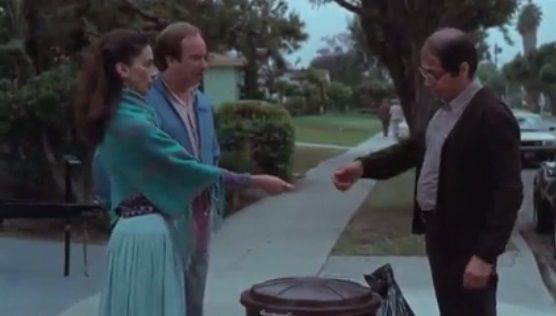
/image%2F1619753%2F20240206%2Fob_d46ce9_31.png)

/image%2F1619753%2F20240206%2Fob_36aaea_32.png)
/image%2F1619753%2F20240206%2Fob_cdd12b_33.png)
/image%2F1619753%2F20240206%2Fob_a4c77e_34.png)


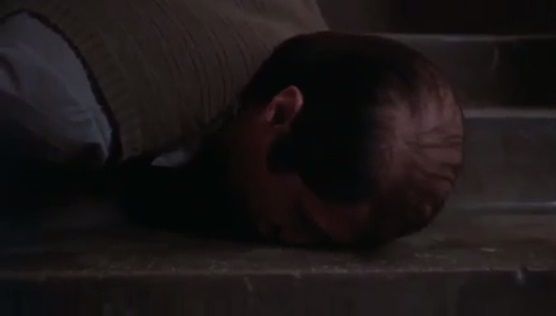
/image%2F1619753%2F20240206%2Fob_88f225_37.png)
/image%2F1619753%2F20240206%2Fob_0662b7_38.png)
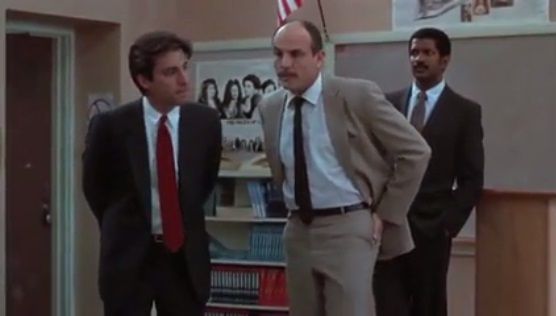
/image%2F1619753%2F20240206%2Fob_9aa3a4_35.png)
/image%2F1619753%2F20240206%2Fob_413fc8_36.png)

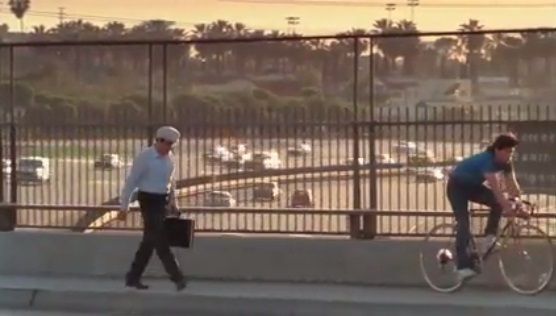
/image%2F1619753%2F20240205%2Fob_3b1719_29.png)
/image%2F1619753%2F20240205%2Fob_ec759a_28.png)
/image%2F1619753%2F20240205%2Fob_084548_27.png)

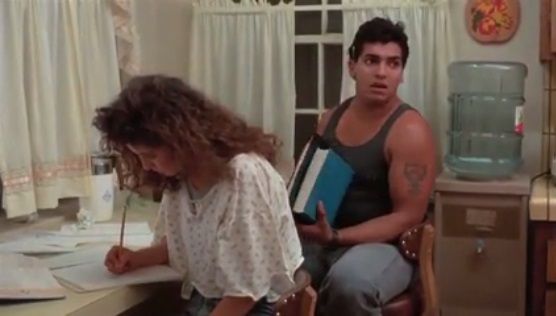
/image%2F1619753%2F20240205%2Fob_1b31c8_24.png)
/image%2F1619753%2F20240205%2Fob_d965ef_25.png)
/image%2F1619753%2F20240205%2Fob_cd1291_26.png)

/image%2F1619753%2F20170224%2Fob_345690_vlc-2017-02-24-05-36-42-51.bmp)
/image%2F1619753%2F20170224%2Fob_d67d89_vlc-2017-02-24-05-36-36-06.bmp)


/image%2F1619753%2F20240205%2Fob_6d1d87_23.png)
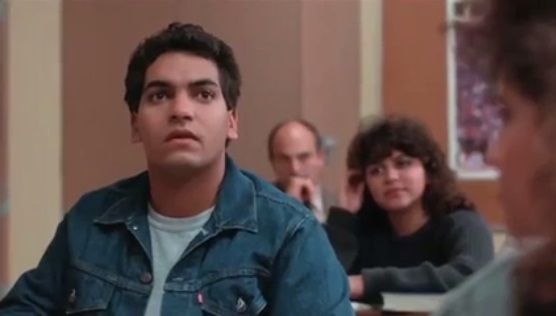

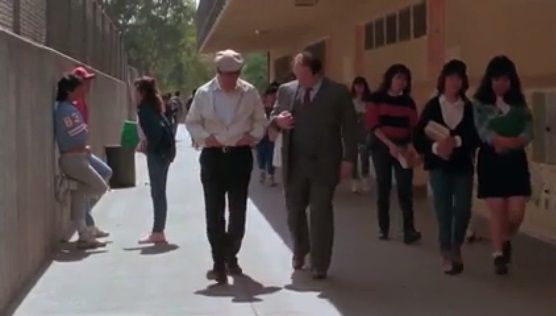
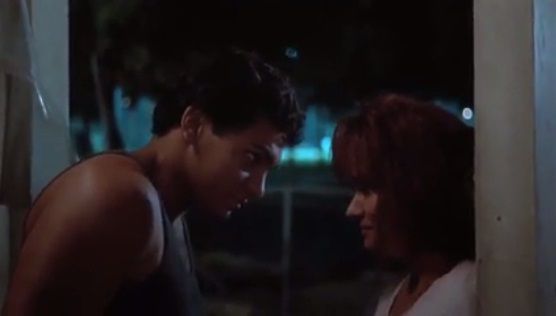
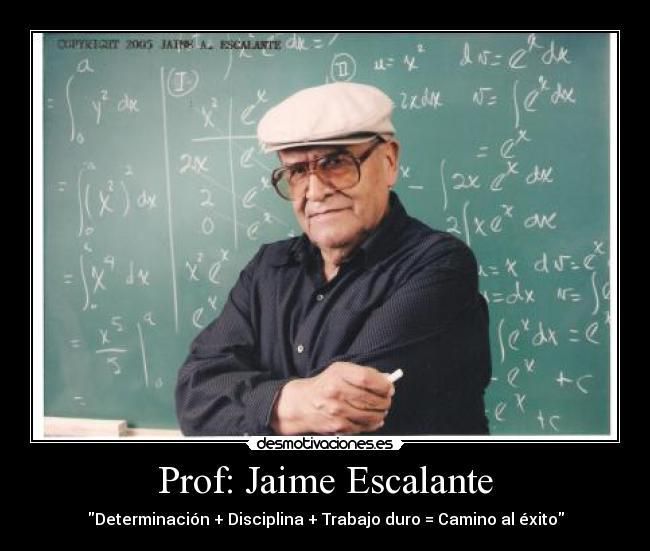


/image%2F1619753%2F20240329%2Fob_945ec9_325.png)
/image%2F1619753%2F20240229%2Fob_ed8d90_28.png)
/image%2F1619753%2F20240207%2Fob_21d540_30.png)
/image%2F1619753%2F20240126%2Fob_8d932a_01.png)
/image%2F1619753%2F20170202%2Fob_40c807_2017.jpg)